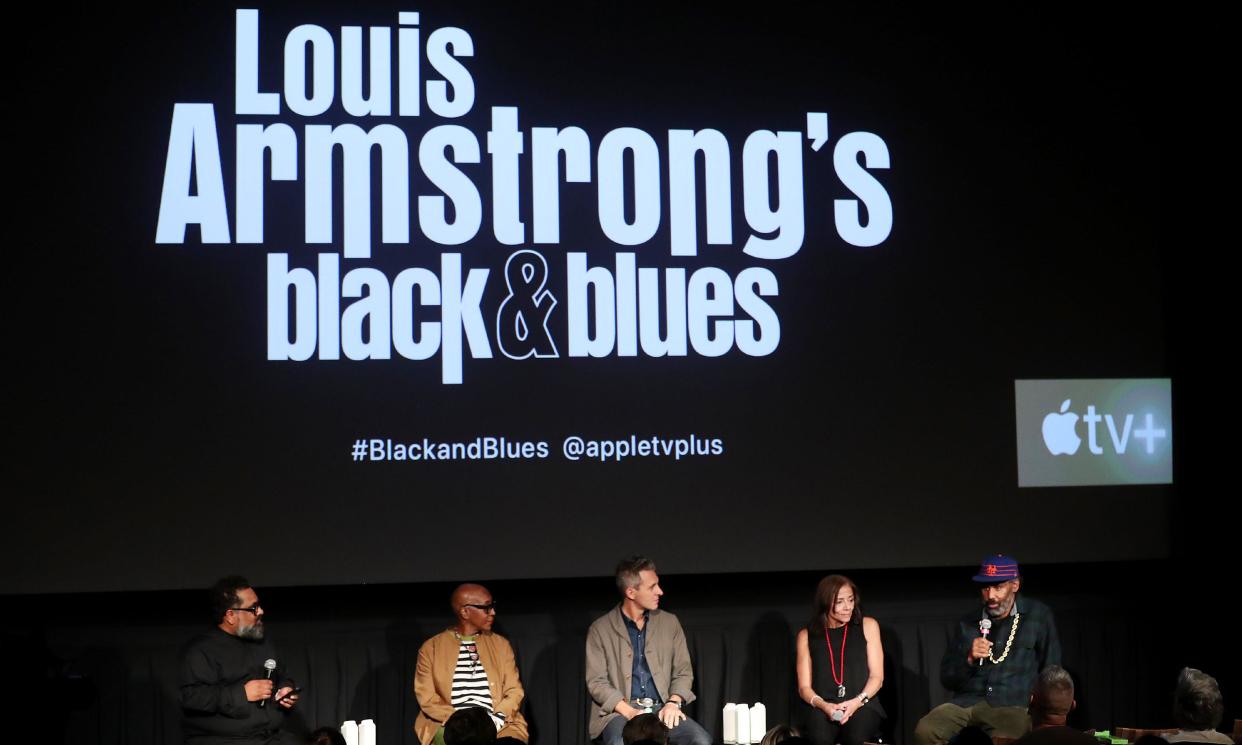Louis Armstrong’s Black & Blues review – swinging doc is a stirring tribute

Luxuriating in a wealth of archival material that encompasses radio and TV interviews, privately recorded conversations from reel-to-reel tapes (Armstrong could swear like a sailor), and good old-fashioned newspaper clippings (remember them?), this documentary about the great Louis Armstrong is a real keeper. Fans of the legendary jazz trumpeter are likely to complain that a mere 104 minutes is not enough to cover such a complex, innovative character whose career spanned decades and hope there will someday be a supercut that goes on for hours. But in a way this swinging, 4/4, 135 beats per minute biography-cum-essay crams a lot into its running time and makes relative brevity its virtue. Like one of Armstrong’s great solos, it feels packed with dynamics, sprinkled with astonishing high notes, and immensely pleasurable.
As with so many docs these days, there are very few talking heads, and instead director Sacha Jenkins opts to layer the sound of unseen speakers over film clips and rostrum shots. One welcome exception is a wonderful sequence where the camera slowly tracks in on actor Ossie Davis as he recalls observing Armstrong when the musician thought no one was looking. The million watt smile was turned off, and he seemed like the saddest man in the world. There are revealing snippets of observation from maestros such as Wynton Marsalis, Miles Davis, Leonard Bernstein and more, as well as bits of Armstrong’s writings read by the rapper Nas. Among all the deeper insights there is plenty of juicy gossip and weird trivia, covering everything from Armstrong’s well-spent youth playing music in brothels, his generosity towards fans (he gave away coal to the poor at some gigs), his taste for marijuana and devoted use of laxatives. Who knew?
Jenkins doesn’t exactly parse material into specifically labelled chunks, but there are distinct thematic groupings here: they cover, for example, Armstrong’s musicianship, his rise to fame, his ambivalent relationship with the white hegemony that ran the music and film businesses, the civil rights movement, and so on. Indeed, there’s a jazzier approach here at play than the usual straight-up chronological plodding of so many bio-docs. Consequently, the film skips from one year to another and back again, weaving and darting from idea to comment with an editorial fleetness that may be a little overpowering for some. But it’s not like there aren’t scads of secondary sources out there if you want to know more about Satchmo, or Pops, as he’s called. The film also represents an excellent primer for younger viewers who might only know Armstrong from, say, his cover of La Vie en Rose in Wall-E.
• Louis Armstrong’s Black & Blues is released on 28 October on Apple TV+.

 Yahoo Movies
Yahoo Movies 
